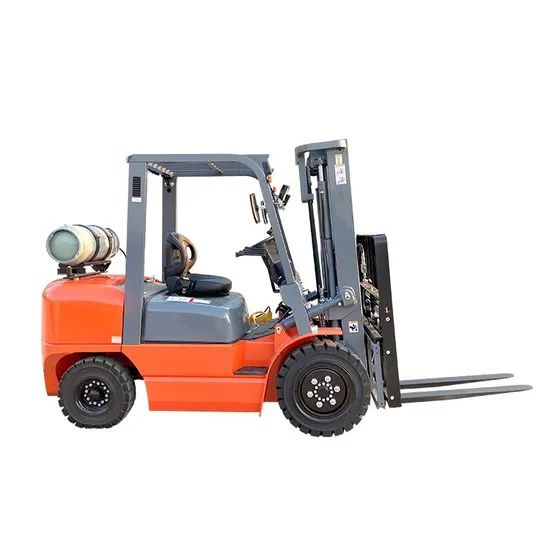Although LPG forklifts (liquefied petroleum gas forklifts) and fuel - powered forklifts (usually referring to diesel or gasoline forklifts) differ in fuel types, as important categories of internal combustion forklifts, they have significant overlaps in several core aspects.

In terms of power and driving principles, both rely on internal combustion engines to provide power. They convert the thermal energy generated by the combustion of fuel (or gas) in the cylinder into mechanical energy to drive the traveling system and hydraulic lifting system of the forklift. Their core structures both include key components such as engines, gearboxes, and hydraulic devices. The working process follows the basic operation logic of internal combustion engines, that is, the cycle of four strokes: intake, compression, power, and exhaust. This makes them have certain commonalities in the stability of power output and mechanical response characteristics.
In terms of functions and application scenarios, the core roles of the two are the same. Both take the loading, unloading, handling, and stacking of goods as their main functions and are widely used in indoor and outdoor scenarios such as warehouses, logistics parks, and factory workshops. Both LPG forklifts and fuel - powered forklifts can adapt to medium - and high - intensity material handling needs. They can handle goods ranging from several tons to more than ten tons according to different load - bearing capacities and play a basic and key role in links such as standardized pallet operations and shelf access.
In terms of usage and maintenance characteristics, both need regular engine maintenance, including changing engine oil, filters, checking the tightness of fuel (gas) pipelines, etc., to ensure the normal operation of the equipment. In addition, their operation methods are basically the same. Drivers can realize actions such as forward, backward, lifting, etc., through the same control levers and pedals, without the need for significant adjustments to operating habits for different fuel types.
At the same time, compared with electric forklifts, both have the characteristics of not needing long - time charging and having relatively small restrictions on battery life by fuel supply. They are more suitable for use in outdoor venues lacking charging facilities or scenarios requiring continuous operation. When dealing with sudden or high - intensity operation needs, the convenience of fuel supply (refueling or replacing LPG cylinders) provides them with similar advantages.


